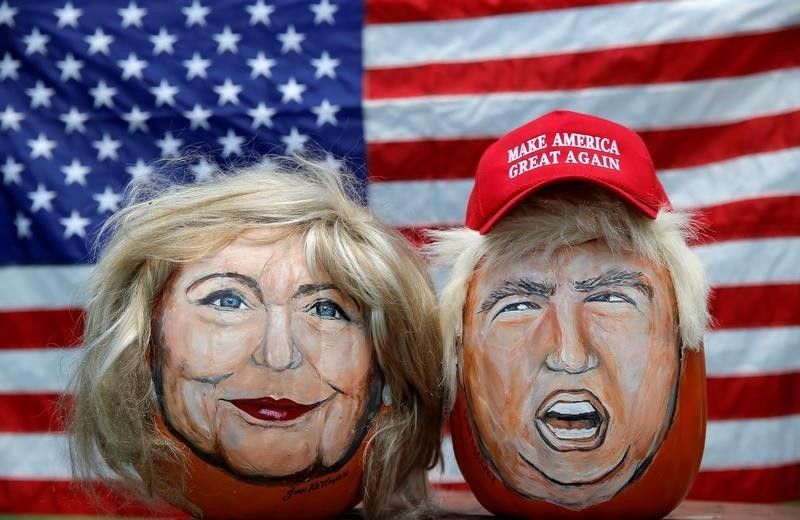
This article first appeared on the London School of Economics site.
I've conducted lots of analyses on how candidates for Congress use Twitter and have found that there are gender differences in what candidates tweet about.
For instance, in both the 2012 and 2014 election cycles, women were more likely to tweet about issues and tweet attacks on their competitors than male candidates.
Women were also significantly more likely to tweet about issues concerning women (i.e., "female issues" such as health care, education, the environment, equality) than their male counterparts.
I also found that female candidates for Congress talk about "male issues" more than male candidates.
The 2016 election has given me the opportunity to examine a presidential contest on Twitter with a female candidate, and my work has already begun. I received a grant from my university to study the way the presidential candidates are using Twitter with two undergraduate students (Kayla Brown and Tiffany Wimberly).
In June, we collected the 794 tweets sent by the presumptive Republican and Democratic nominees. Examining that data alone, we found many of the things my previous research has shown.
First, Hillary Clinton far out-tweeted Donald Trump. In the month of June, Clinton sent approximately 493 tweets, 66 of which were retweets. Trump, on the other hand, sent 291, 55 of which were retweets. This parallels my work on Congress in 2012, when I found that women were significantly out-tweeting their male competitors.
Clinton spent significantly more time on political issues than Trump, who barely mentioned any issues on Twitter.
We coded tweets for whether they either mentioned or took a side on a political issue. Retweets excluded, approximately 27 percent of Clinton's tweets were about specific policy issues, while only 9 percent of Trump's tweets were about policy issues.
In terms of my previous work on Congress here and here, female candidates were also out-tweeting male candidates about issues, but not to this extent.
When we look at the specific issues mentioned through a keyword search, Clinton discussed "female issues" in approximately 14 percent of her tweets, compared with only 2 percent for Trump.
Clinton's tweets over the past month mentioned the LGBT community, women's access to reproductive services, education and health care. Out of the six tweets Trump sent that fell into this category, five mentioned the word women or LGBT and were attacks against Clinton. The sixth tweet mentioned Obamacare. This is also on par with my previous research on gender and issue mentions on Twitter.
Clinton also discussed more "male issues" in her tweets than Trump. Over 20 percent of Clinton's tweets mentioned "male issues" like gun control, immigration and economic issues. When it came to Trump's tweets, 15 percent mentioned these same issues, many of which were attacks on Clinton.
Finally, Clinton attacked Trump more on Twitter than he attacked her. Clinton is absolutely "trumping Trump." Last month, 34 percent of her total tweets criticized Trump, while only 22 percent of his tweets criticized her. This is also in line with my previous research here, here and here, which shows that female candidates were more negative than their male competitors.
Trump, on the other hand, spent a lot of time attacking other people on Twitter, like other Republicans, Democrats, government in general and the media. Over 17 percent of his total tweets were spent criticizing these other groups, while less than 1 percent of Clinton's tweets were negative about these groups.
Overall, then, it looks as though Clinton is adopting a more aggressive and issue-oriented approach to Twitter, similar to female candidates for Congress in both 2012 and 2014.
Our future research will focus on the campaign messages sent from both candidates' Twitter accounts, as well as the content of the interviews they give through Election Day.
If this last month is any indication of future Twitter behavior, we can expect Clinton to focus more on policy and criticizing Trump, while we can expect him to criticize everyone else.
Heather Evans is an associate professor in the Department of Political Science at Sam Houston State University. Kayla Brown and Tiffany Wimberly are juniors majoring in political science at Sam Houston State University and contributed to this article.
This article presents the views of the authors and not the position of USAPP – American Politics and Policy or the London School of Economics.
Uncommon Knowledge
Newsweek is committed to challenging conventional wisdom and finding connections in the search for common ground.
Newsweek is committed to challenging conventional wisdom and finding connections in the search for common ground.
About the writer
To read how Newsweek uses AI as a newsroom tool, Click here.






